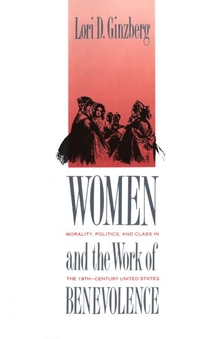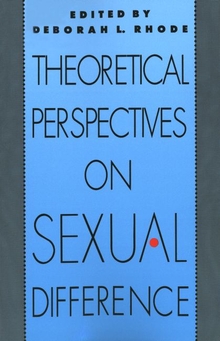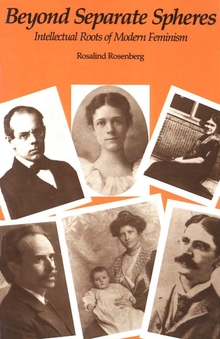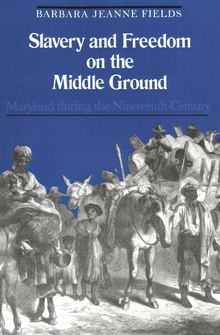Women and the Work of Benevolence
WARNING
You are viewing an older version of the Yalebooks website. Please visit out new website with more updated information and a better user experience: https://www.yalebooks.com
Morality, Politics, and Class in the Nineteenth-Century United States
Lori D. Ginzberg
"Ginzberg offers a carefully nuanced interpretation of antebellum women reformers. . . . Ginzberg’s determination to juxtapose issues usually studied in isolation could stand as a model for American social historians of any period. Her questions about the intersections of gender, morality, class, and politics will remain significant for years to come."—Peggy Pascoe, American Historical Review
"In this lucid and important book, Lori Ginzberg argues that in the middle decades of the nineteenth century, the `ideology of benevolent femininity evolved synchronously' with other changes in American reform ideology and political culture. In the 1830s and 1840s and ideology of female roles in charity and reform offered . . . a rhetoric of women's superiority and solidarity, even across classes, based on common natures and gendered experiences. Cultural and political developments in the 1850s and 1860s, however, led to a post-Civil War consensus that the work of philanthropy was essentially a class-based, not gender-based, activity that properly reflected the techniques and philosophy of the business culture it sprang from. . . . Ginzberg has done an excellent piece of work, intelligent, gracefully written, and creatively cognizant of its historiographical context."—Mina Carson, Annals of the American Academy of Political and Social Science
"Ginzberg's study is well written and beautifully produced; its impressive synthesis of secondary literature and primary documents will make it useful for social reform and gender studies courses."—Ian Tyrell, Book Review Digest
"Critically examining a multitude of private writings by benevolent ladies, scores of biographies, and the growing number of secondary works on particular causes and organizations, Ginzberg constructs a highly sophisticated argument explaining how gender and class considerations interacted to shape benevolent activity. . . . A significant scholarly work, appropriate for upper-division undergraduates and above. Essential for institutions with strong women’s studies program."—Choice
"Ginzberg’s study is a useful addition to the literature, demonstrating the importance of women’s public reform activities as a locus of class and gender analysis."—Nancy Isenberg, Contemporary Sociology
"The interconnections of class and gender relations are at the center of Lori Ginzberg's excellent study. . . . By tracing transformations in benevolent rhetorics and practices throughout the nineteenth century, Ginzberg argues that the conflation of morality and gender played a pivotal role in the constitution of middle-class identity. . . . By probing the ideologies of gender sameness and difference and their relationship to benevolence and class, Ginzberg debunks conventional assumptions that universal cross-class sisterhood characterized women's benevolence work and that the bounds of womanhood erased class barriers."—Karen Tice, Educational Studies
"Look[s] with greater depth at the far-reaching ramifications of women's benevolence and provide[s] documentation of the significant societal and political change the Ladies Bountiful of the past have ushered in."—Kathleen Brown Fletcher, Foundation News
"A highly interpretative study of women's benevolence. . . . Ginzberg's study of women's moral agency and the intersection of middle-class self-consciousness will long remain a source for discussion among historians."—Elizabeth Hayes Turner, Georgia Historical Quarterly
"Ginzberg’s chapters are cohesive, her hypotheses boldly put forth, with the research richly supportive of her conclusions."—Sidney R. Bland, History: Reviews of New Book
"A provocative, multi-dimensional critique of facile linkages between morality and gender."—Kathleen C. Hilton, Journal of Social History
"Persuasive and compelling. . . . Ginzberg's well-documented book rests on an impressive amount of original archival research, which allows her to make the kind of serious contribution from which any student of American cultural history could profit."—Mary Louise Kete, New England Quarterly
"Ginzberg . . . here theorizes that organized charity in the U. S. in the last century evolved from a gender-based movement to a class-based one. . . . The long tradition of women’s reform activism is copiously documented in this scholarly thematic study."—Publishers Weekly
"To read Ginzberg is to confront the difficult questions which face today's feminists. Is it possible for feminism to empower women without adopting an essentialist stance? Can a feminism that focuses on difference still fight for equality? Can feminism cross class lines and not simply mask class goals? These are the larger questions Ginzberg's ambitious book ultimately poses. The boldness of her thesis and the significance of the issues she raises within the historical context of female benevolence have already provoked debate and made her book required reading in women's history."—Sarah Stage, Reviews in American History
"A beautifully written, theoretically rich study of benevolence work in three phases over the nineteenth century."—Lisa J. Disch, Signs
"Examining the role of nineteenth-century middle-class women in organizing and supporting benevolent or charitable societies from the 1820s to the 1880s, Ginzberg concludes that the 1840s and 1850s were pivotal decades. . . . Ginzberg focuses much attention on women’s perceptions of their own ’benevolent femininity’ and the extent to which this perception led many to become involved in charitable and social causes."—Studies in the American Renaissance
"Ginzberg does an admirable job of integrating analysis with narrative and of engaging in the sort of complex synthesis of class, gender, and politics that so many talk about and so few attempt."—Victoria Bissell Brown, The Historian
Publication Date: July 29, 1992














